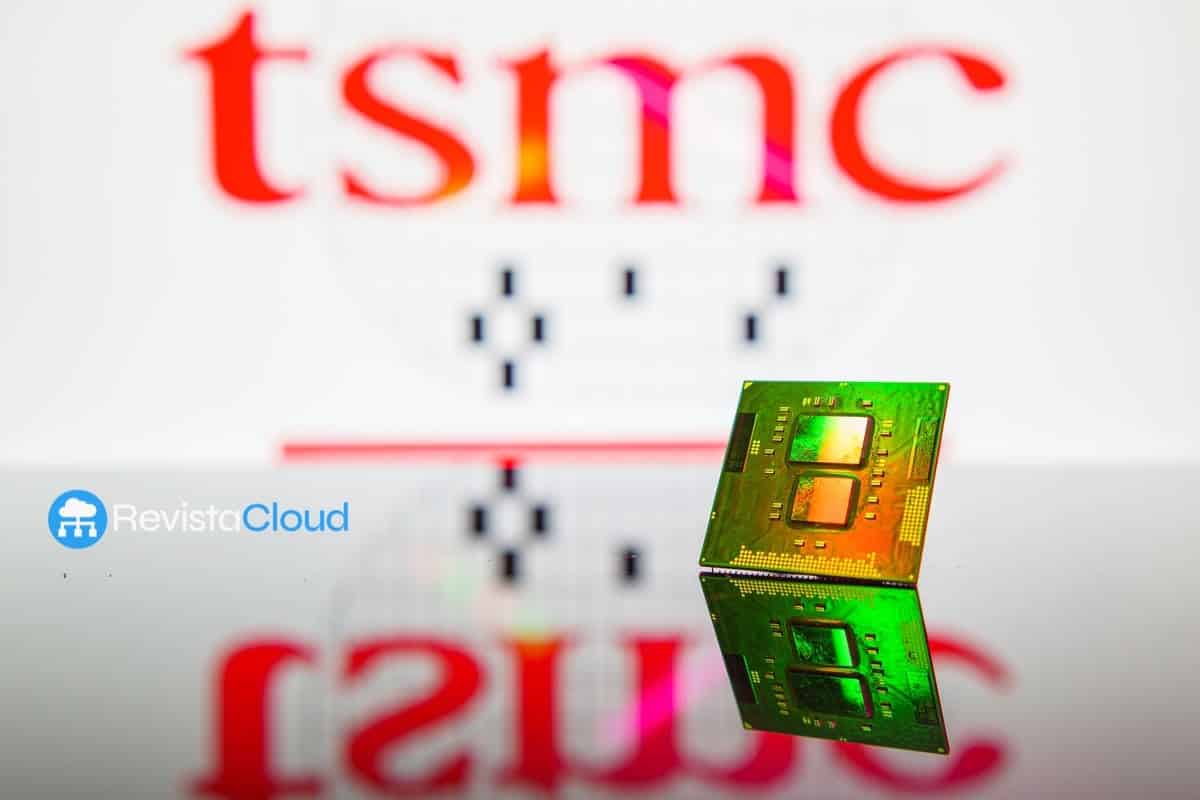The world’s largest semiconductor manufacturer, TSMC (Taiwan Semiconductor Manufacturing Company), is once again at the center of a high-profile technology security scandal. Taiwanese authorities have requested up to 14 years in prison for three former company employees accused of leaking key information about their 2-nanometer (nm) chip manufacturing process, one of the most advanced in the industry.
The investigation reveals that this case is not only about industrial espionage but also falls under Taiwan’s national security laws, given TSMC’s strategic importance to the country’s economy and defense.
The main suspect is Chen, a former TSMC engineer who, after leaving the firm, joined the marketing department of Tokyo Electron, one of the world’s largest semiconductor equipment suppliers and a key partner of TSMC.
According to charges, Chen asked his former TSMC colleagues to share highly confidential information about the 2 nm process. His goal was to improve Tokyo Electron’s etching machines, a crucial step in advanced lithography that involves removing layers from silicon wafers to define circuits.
Prosecutors assert that Chen knew full well that TSMC maintains strict confidentiality agreements with all its technology partners, including Tokyo Electron.
Following an internal alert, TSMC notified Taiwanese authorities, who launched an extensive investigation. As a result, three individuals have been charged:
- Chen (former TSMC employee now at Tokyo Electron): accused of five years for stealing industrial secrets with foreign intent, three years for trade secrets theft, and eight years for violating Taiwan’s National Security Act by removing critical and essential secrets — potentially facing up to 14 years in prison.
- An active TSMC employee: charged with using industrial secrets abroad and trade secret theft.
- A second TSMC employee: accused only of using industrial secrets overseas.
The ongoing legal process underscores Taiwan’s legal emphasis on protecting intellectual property as a matter of national security.
TSMC’s 2 nm process is a major milestone in semiconductor technology. It aims to keep the company ahead of rivals like Samsung Foundry and Intel Foundry Services, who are also advancing in 2 nm and beyond.
This manufacturing node promises:
- Greater energy efficiency: up to 30% reduction in power consumption compared to 3 nm.
- Higher transistor density: nearly 300 million transistors per square millimeter, essential for miniaturization.
- Boosts in AI and high-performance computing: vital for AI servers, supercomputers, and 5G/6G applications.
- Applications in defense and secure communications, which highlights its ties to Taiwan’s national security.
Taiwan views TSMC not just as an industrial giant but as a geopolitical shield against China, which claims the island as part of its territory. Therefore, TSMC’s intellectual property is protected as a sovereignty asset.
Tokyo Electron’s role is significant since it supplies critical equipment for advanced chip manufacturing. Its machines, including the Lithus Pro Z, work alongside ASML’s extreme ultraviolet (EUV) lithography systems — the only tools capable of producing chips at 2 nm nodes or smaller.
Chen’s connection to Tokyo Electron has raised suspicions. Although there’s no evidence the Japanese company knew about the illegal activities, the case exposes risks of leaks in highly interconnected supply chains.
This incident reflects the challenges faced by tech giants in safeguarding their industrial secrets in a globalized environment where fierce competition coexists with a scarcity of specialized engineers.
For TSMC, the repercussions go beyond a potential loss of competitive edge; they threaten reputation. Every leak undermines trust from clients like Apple, NVIDIA, AMD, and Qualcomm, who rely on the company to produce the world’s most advanced chips.
The investigation takes on even greater significance when viewed in the context of international geopolitics:
- The US is pressuring TSMC to establish factories in Arizona and reduce reliance on Taiwanese production.
- China accelerates its own semiconductor efforts but still lags behind in 7 nm and smaller technologies.
- Japan, where Tokyo Electron is based, is a strategic ally of the US and Taiwan, adding diplomatic nuance to the issue.
In this scenario, industrial espionage isn’t just a corporate crime — it influences the global power balance in semiconductor technology.
The charges against Chen and the other two workers highlight that this is more than espionage; it exposes the fragility of technological security in the heart of the global chip supply chain. TSMC’s role as a strategic asset for Taiwan and allied nations will be a key focus moving forward.
The final ruling will establish a precedent for the legal protection of industrial secrets amid the increasing blurring of lines between innovation and national security in the nanoscale era.
FAQs:
Why is the 2 nm technology so critical for TSMC and Taiwan?
Because it is the most advanced manufacturing node globally, essential for AI chips, smartphones, and supercomputing. TSMC is Taiwan’s largest industrial asset and central to its national security strategy against China.
What role does Tokyo Electron play in this case?
It supplies semiconductor fabrication equipment and employs the main suspect, Chen. Its tools work with ASML EUV systems to produce cutting-edge chips. While no complicity has been proven, the case highlights risks in global supply chains.
What penalties might the accused face?
Chen could face up to 14 years in prison for violating Taiwan’s National Security Law and stealing industrial secrets. The other two TSMC employees face charges related to misuse of trade secrets abroad.
How does this impact the global semiconductor industry?
It raises concerns over protecting intellectual property in a highly competitive and geopolitically sensitive sector, prompting companies and governments to reinforce legal and cybersecurity measures to safeguard critical technologies.

